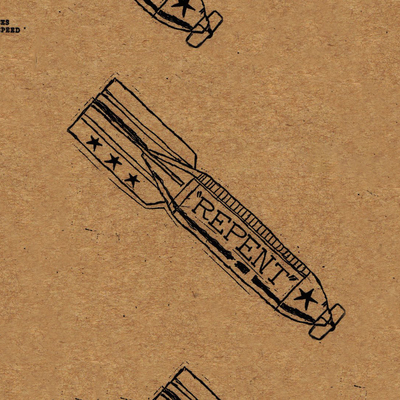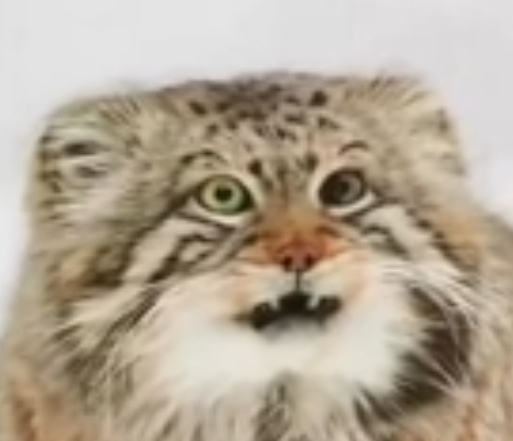So I heard my friend call an invasive plant a displaced relative and when pressed on it they basically said that the plants didn’t choose to come here and they are victims of colonialism. Invasive implies they aren’t welcome, you wouldn’t say that the enslaved people brought over to the new world are invasive so why would you a plant? Then they said human agriculture was invasive because it’s monoculture and doesn’t allow other plants to grow, which you know fair point. So what’s the consensus is my friend an idiot or am I an idiot?
Edit: I just texted my friend, they said they got the concept from this book. Fresh Banana Leaves: Healing Indigenous Landscapes Through Indigenous Science
Is outright extermination of invasive species the answer though? Grass for example can grow without human intervention in a lot of places, maybe the answer is that humans should prioritize growing some species without outright killing other ones. Ripping out every lawn seems rather a pointless effort. Why can’t it just coexist with native species?
Some invasives should absolutely be eliminated (for a long time I've thought this would make a good jobs program). In the PNW for example Japanese knotweed very quickly forms thick stands that prevent any natives from growing. English ivy and clematis can completely cover mature trees, kill them, then carpet the ground and prevent any more from growing.
In contrast, foxglove is non-native in the one but it isn't aggressive in the same way, doesn't form monocultures, and some local pollinators like it.
In contrast, foxglove is non-native in the one but it isn’t aggressive in the same way, doesn’t form monocultures, and some local pollinators like it.
Does that make it less invasive?
The American Chestnut tree (abundant food source and ecological keystone species) is nearly extinct thanks to an introduced fungus. Sometimes coexistence isn't an option. (It would be if we genetically engineered a resistant version of the tree and spread it in the old range)
Yes. If you want to have native species in their environment then you have to get rid of the invasive species because their presence makes it a different habitat.
There is no coexistence with invasive species because they outcompete the native ones and change the biome and environment. You can’t have both.
There's a species of honey suckle in North America that is from Asia. N.A. native honey suckle will typically die back during the winter months but the Asian version does not. So what happens is that the vines will grow up trees, never die back, and damage or outright kill a tree. This free falls over and damages/kills other trees while the Asian honey suckle keeps on growing and growing and growing.
The Asian version can't coexist as its existence in most North American environments means it takes over, hence the term, "invasive."
it's not extermination they're fine back in the places they're native
hell of a thread so far folks. my favorite part was when we found out the friend wasn't real
Then they said human agriculture was invasive because it’s monoculture and doesn’t allow other plants to grow, which you know fair point.
Don't get suckered in by AnPrim talking points, it's ecofascsim with an anarchist coat of paint. Like, sure, early agriculture was very bad for neolithic ecosystems and its development coincides with labor specialization, social stratification, the spread of communicable disease and other not good stuff.
But in a world of 8 billion people, giving up agriculture is not an option. Unless you're cool with allowing billions of people to starve. Invasive species, however you want to call them, make crop failures and famines more likely. Even if you're vegan (I am), I'm still going to prioritize human death and suffering over that of like emerald ash borers and whatever fly it is that decimates fruit harvests.
The whole concept comes from Fresh Banana Leaves: Healing Indigenous Landscapes Through Indigenous Science
What concept? That we shouldn't call introduced species "invasive?" I mean, sure, that's cool I guess but it's still aesthics fetishism.
Why don't the native plants simply compete better in the marketplace of the wild?
I think this is why a little bit of realism is always healthy. Your friend has taken axioms about colonialism and stretched them beyond their limit. "Pure ideology" one might say.
basically said that the plants didn’t choose to come here and they are victims of colonialism.
They are plants. Plants cannot be “victims” as they are not subjects
Look I’m recommending everyone to the book that inspired this thread. Fresh Banana Leaves: Healing Indigenous Landscapes Through Indigenous Science
Sounds like it’s not your “friend” with these stupid ideas but you
Look I was trying to do a dear prudence bit to set up the thread, there is no friend, I made it up, are you happy? I was honestly just trying to remember the name of the book I heard about one time that talked about this and hoped someone would remember it before I did.
Comparing the plight of indigenous and colonized humans with non-sentient plants feels closer to mockery and belittlement than it does anything useful or emancipatory
I’m also pretty sure the vast, vast majority of indigenous and colonized people are not taking this absurd pro-invasive species position of ecological destruction
An invasive species is an introduced organism that becomes overpopulated and harms its new environment. Although most introduced species are neutral or beneficial with respect to other species, invasive species adversely affect habitats and bioregions, causing ecological, environmental, and/or economic damage.
Human beings often bring invasive species into a new environment. We do so by some combination of error, chance, intention, greed, and stupidity.
Should “invasive” species be removed, that’s the question, also should they even be called invasive? Humans meet all the qualifications for invasive species, it would be wrong to apply this standard to humans so what if it’s wrong to apply this to plants and animals?
You seem to not realise that it's reffering to rampant things that cause ecological harm.
Cats in Australia have extinctionated multiple bird species.
Zebra mussels, rats, things like that.
"Invasive species" is not another word for "introduced species"
it's a philosophical question, so you won't get a definitive answer. humans don't eat humans, normally. but some of us eat animals, and all of us eat plants. where does one draw a line between what's more deserving to live and what's less? should there be a line? on what basis? we can't not eat. although there are groups advocating human extinction based on the reasoning that that'd be best for the planet.
but "plants are victims of colonialism" is a beautiful take. i feel like if it appeared on twitter ppl there would lose their minds for a couple of days.
also: mowing your lawn is not bourgeois, actually. au contraire, my friends, it's pure communism because individual grass leaves wanna grow as high as they can, some are just better at it, and then comes you, a filthy Marxist, and violently makes them equal.
I’m looking for a non-philosophical answer to this question. Either our concept of invasive species is right or it is wrong. If a species can survive without human intervention does it deserved to be removed?
I’m looking for a non-philosophical answer to this question.
It's a philosophical question. By definition you're not going to get a concrete answer. Worrying over the term "invasive" is just aesthetics fetishism, and "right" and "wrong" are abstractions. The real question is whose interests you favor: the people and ecosystems that can be harmed by a new species for which no natural check exists, or the new species itself.
But another point, this is all kind of academic. No state program of any worth exists for dealing with invasive species in the US, and none are planned, so this is just an intellectual excercise.
Now i'm thinking of the trolley problem :) If one species survives by harming several others, should we let it do so, or remove it to save others? And, moreover, there already has been human intervention--the introduction of the said species into an environment that's normally foreign to them.
I think our concept is fine, because it just describes a process---animals or plants from another region of the world are artificially introduced into a new environment and begin modifying it to the detriment of its native species. It seems to me your problem is with the word we use for this concept because it is moralizing this process, saying it's a "bad" thing for a species to survive any way it can. Nietzsche would be on your side.
Look this whole thread was inspired by a single book and I just want everyone to at least read a summary of it. Fresh Banana Leaves: Healing Indigenous Landscapes Through Indigenous Science
The parts about fights against eco terrorism in Latin America seem interesting
But this is fundamentally a philosophical question, because it's a question about what we should (and do) value. Answers to questions like that can't be read off of nature in any kind of meaningful way. Once we have a good idea of what kind of world we want, then there might be clear facts of the matter about how best to bring that world about, but there's no experiment you can do that will tell you what you should value. Even experimental design is fundamentally value-laden.
a non-philosophical answer
So when a category of philosophical questions can be effectively answered using formal methods, it becomes a science. Unfortunately I don't think moral philosophy has gotten to that point.
Invasive borer beetles in California have been rapidly accelerating the state turning into a Savannah by preying on already drought afflicted forests and because they have no natural predators have been expanding unchecked for around a decade.
Depends if surrounding nature can adapt to them, or do they do pure unmitigated “colonization” without natural herbivores who can deal with that particular plant bullshit.
Sometimes “invasive” species can be helpful, honestly I really like the displaced relative term. Imagine an Italy without tomatoes, or an India without peppers, certain plants just find a niche in places far from their native land.
If they're beneficial, they're probably not invasive. You seem to be taking "invasive" to mean "non-native" or "introduced". Read @InevitableSwing original comment again. Only some introduced species are invasive.
Yes food crops were imported to Eurasia from the Americas. Did they escape cultivation and begin proliferating in the wild and disrupting their new ecosystem? They're only invasive if the answer to the previous question is yes. Anyway I've never heard of a food crop doing that and I'd suspect that a plant's properties which make it a good food crop make it poorly suited to wild proliferation in a new ecosystem. So that it's a rare occurrence.
Most invasive plants seem to be spread either by accident or by careless ornamental gardening.
Their are other questions though.
Should we seek to eliminate all introduced species? Not just invasive ones? I say no, or at least, it should be a very low ecological priority. Since they are not invasive, they are by definition not harming their ecosystem.
Should we eliminate introduced plants as food crops? Again, no. Not only are they not proliferating and harming the ecosystem, they're providing food for us! If anything, cultivating a food plant beyond it's native range might even be helpful, because the farmer might be out of range of the plant's native pests and have an easier time growing as a result.
Plants isn't unhappy, wasn't hurt and is hurting other things. Like, I'm sure some conquistadors wanted to stay home but once they started taking part in yhe conquest they're not victims. Also my ancestors that moved to the US by choice were still ultimately moved by things outside their control and they(me by extension) definitely have had a negative impact on native peoples and animals, even if they weren't setting out to colonize. Sure wheat maybe didn't plan to destroy the great basin, nor did my great grandfather think "oh boy, time to live on stolen land!" but both were aided by colonialism and need to be dealt with to fix it.
Co-evolution is the problem. Native flora evolved with native fauna and native geography. It anchors the soil in certain ways, feeds species that developed to eat their specific nutrient profile and morphology, and has some sense of balance where one plant species doesn't crowd out another. Introduce an invasive species and the whole ecosystem has to adapt to it. It might out-grow other plants, its root profile might be shallower, it might be shit as food and habitat for wildlife who expect to find a tree that flowers in October and can only find ones that flower in June. We change the course of rivers for irrigation and turn forests into timber farms.
In a sense that's colonialism. That's not an issue of monoculture agriculture though so much as it is human development in general. Suburbs use the same inputs and the same philosophy, equally alienating those species from their needs and forcing them into unnatural states subservient to the invasive populations. A squirrel that has to dodge traffic to find a tulip bulb because nobody plants nut trees is just as much a victim as a bird that has to fly over ten acres of green desert to find an insect that's poisoned by glyphosate.
The answer to it isn't anarchoprimitivism either, ecosystems aren't static and humans will influence them at any level of social organisation, but biocentric re-development that heals the big naturalistic contradictions like the metabolic rift and separation of town and country. Those natural instruments of production need legal protection for their needs, like the non-human human classification we give to other intelligent animals, and the development focus needs to be restoring as much of that landscape as possible because it underlies our ability to live on top of it.
edit: Locally we have three good examples of this.
-
Emerald ash-borer beetles evolved in lower-density forests and were constrained by that. Introduced here with dense conifer forests and no native predators, they've quickly killed most of the forests. This provides a lot of dead wood for historic wildfires. The wildfires destroy the flora that hold the soil in place and cause massive landslides. Entire towns risk being destroyed because of one invasive species.
-
Urban development along the base of the mountains forced deer into the narrow habitable zone of the foothills, someplace they'd seasonally migrate to but that's inhospitable for half the year. Hunters only select the best specimens so the concentrated population is left with the weakest members. Chronic wasting disease developed in them, spread through bodily fluids/soil, and they were concentrated into the same areas as other herds/mammals drinking from the same seasonal streams. Now that risks transmission to humans and the only way we can control the population is through hunting, with the state conservation bureau dependent on tag fees to fund itself.
-
The Great Plains evolved with seasonally migrating big herbivores like buffalo. They'd suppress especially prolific plant species, fertilise and compact the soil, and move on before that interaction became counterproductive. We depopulated them as a genocide project against plains tribal nations while simultaneously introducing cattle and wild horses. Both have different grazing patterns and preferences, neither migrates to the extent of the buffalo or in such large numbers, neither has natural predators. The result is giant ranches with terrible soil and massive runoff, herds of starving horses that have to be culled with the only market that eats them being across an ocean. The cattle ranches further deny land to natural animals and the horses forage what would otherwise go to rabbits without being prey for eagles or coyotes.
-
















